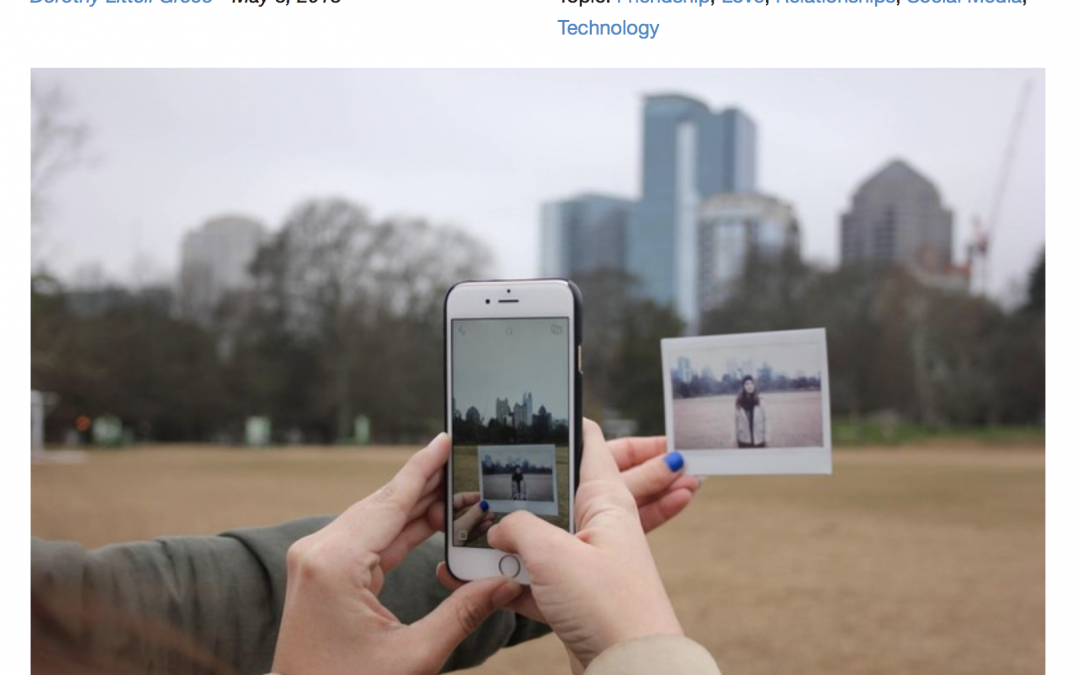
At a time when we have an unprecedented ability to connect with anyone, anywhere, research is confirming what many of us intuitively know: we’re lonely. We’re actually not connecting, at least not in meaningful ways.
That loneliness is contributing to higher rates of anxiety, depression, and suicide, particularly among Millennials and Gen Z (also known as iGen). Author and researcher Jean Twenge wrote in an article for The Atlantic, “It’s not an exaggeration to describe iGen as being on the brink of the worst mental-health crisis in decades.”
Twenge and others trace this mental health crisis, at least in part, to our reliance upon hand-held devices and social media. As an article in Forbes Magazine explained, “Though we temporarily feel better when we engage others virtually, these connections tend to be superficial and ultimately dissatisfying.”
Rest assured, this is not an anti-social media rant. I regularly use and rely on many forms of social media to promote my work and maintain contact with family and friends across the globe. I too enjoy the little dopamine surge when I open up my laptop in the morning and see that last night’s Facebook post garnered dozens of likes. It makes me feel warm inside. It also keeps me coming back. By design.
In a recent article in Slate, Sean Parker, one of the early Facebook investors and its first president admitted: “The thought process was all about, ‘How do we consume as much of your time and conscious attention as possible?’ And that means that we need to sort of give you a little dopamine hit every once in a while, because someone liked or commented on a photo or a post or whatever, and that’s going to get you to contribute more content, and that’s going to get you more likes and comments. It’s a social validation feedback loop. … You’re exploiting a vulnerability in human psychology.”
To read the remainder of this article, please click this link to Biola’s Center for Marriage and Relationship.
And here’s the link for part 2.
